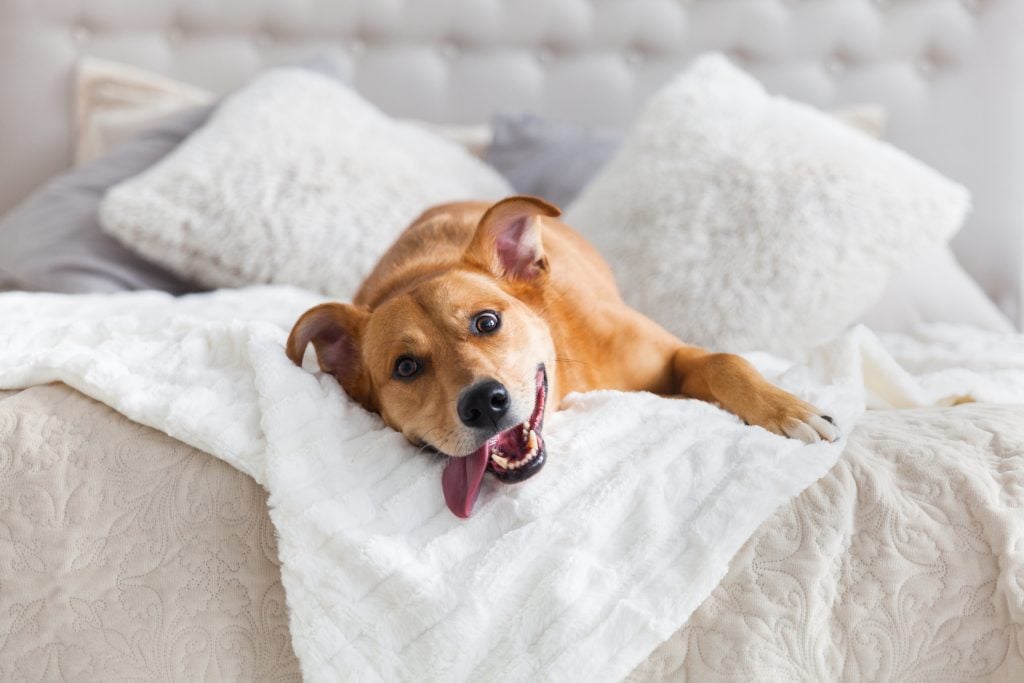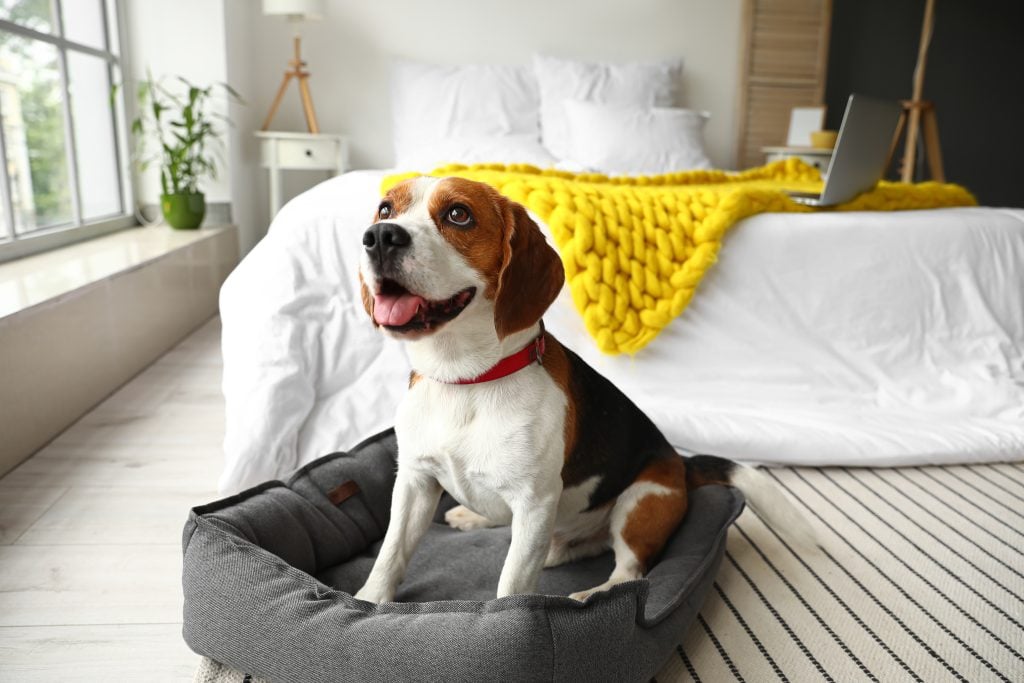Whether it’s appropriate to share your bed with your dog is a subject that resonates with almost every dog owner. Some owners can’t think of anything better than letting their furry pal cuddle up to them in bed, whilst others issue strict boundaries between the dog’s bed and their own. However, there is also a category of dog owners who fall somewhat between these two standpoints; they’re likely to encourage their dog to sleep in their bed but will often give into the effect of ‘puppy eyes’ and let their dog sleep with them for ‘just this one occasion, okay?’. Our blog outlines the suitability of sharing your bed with your dog and alternative measures you can take to ensure your dog receives a great night’s sleep in their own bed.

As mentioned above, the answer to this question will likely vary from owner to owner. There is no definite answer to this, and whether your dog should sleep in your bed ‘depends on his health and your health.’.
Whilst at initial thought, the prospect of going to sleep and waking up every morning next to your dog may sound like a match made in heaven, it’s essential to consider whether sharing a bed could have a detrimental impact on your health and sleep. Below are important factors to consider when sharing a bed with your dog.
Excessive movement throughout the night, almost inevitable as the average person moves about 13 times an hour during sleep, could potentially disrupt your dog’s sleep. If you’re aware that either yourself or your partner makes excessive movements in their sleep, your dog may be better suited to a dog bed.
Similarly, if you’re a light sleeper and have been known to wake at the slightest of movements, sounds or exposure to light, your dog is likely to influence your night’s rest.
The size of both your dog and your bed is also an important consideration; if your dog is large in stature, your bed is relatively small or a combination of the both, there may not be enough room to accommodate your dog in bed leading to yourself and your pet experiencing a poor standard of sleep.
If you’re prone to allergies, it’s recommended that your dog doesn’t share a bed with you. As the Polyclinic explains, dogs can ‘track pollen, dirt and grass into bed’ and therefore, ‘if you suffer from allergies or asthma, this can lead to worsening symptoms both day and night’.

Dogs live for the outside and therefore are prone to be caked in mud, carrying pesticides and exposure to bacteria; dogs can be exposed to ‘infectious diseases not only from infected animals and improperly cooked food, but also via insect vectors and contaminated soil and water.’ Therefore if your dog returns home from a walk and makes a beeline for your bed, the cleanliness of your bed and potentially your health could be compromised. It’s essential to ensure your dog is clean before they jump on your bed.
The consensus is that puppies shouldn’t sleep in your bed and should learn to sleep alone so ‘they don’t grow up clingy and co-dependent or develop the mistaken impression that the bed is a right, not a privilege.’
Your bed’s suitability for your dog isn’t from the standpoint of ensuring your dog is pampered and spoilt. Instead, it’s related to whether your dog can safely enter and exit the bed. For example, if your dog is reaching their prime years and is less athletic than they once were, sharing your bed may not be feasible.
You are the main reason dogs want to sleep in your bed; as Buddyrest explains, ‘It is instinctive for them to feel safe when in close proximity to their pack. Once you bring a dog into your home, you become part of their pack.’. The familiarity and protection you project onto your dog are showcased by your dog’s willingness to sleep by your side every night. With this in mind, a compromise can be made- instead of insisting that your dog sleeps elsewhere in your home, why not place their bed next to yours? Of course, it’s almost inevitable that your dog will plot times to sneak into your bed, but once you’ve settled into a routine, there is no reason why you can’t both blissfully sleep in separate beds but in close proximity to one another.

One way of deterring your dog from sharing your bed is to incentivise the prospect of your dog sleeping in their bed instead of yours. Aside from your comfort and familiarity, one of the reasons your dog will make a beeline for your bed is because of how comfy it is- therefore, why not try and replicate this comfort in the form of a dog bed? After all, there is a theory that dogs ‘gravitate towards the area of the bed where there is the most space to spread out and enjoy a good night snooze’. Our superb range of spacious dog beds here at Mattressman centres around superb quality and comfort, ensuring your dog can reap the rewards of our dog beds for many years.